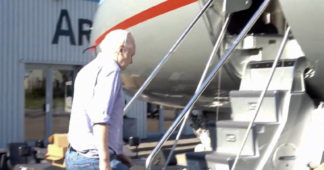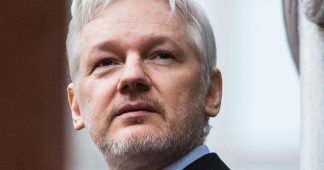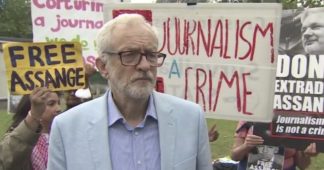As part of his plea deal with the United States, Julian Assange agreed to order the destruction of any unpublished U.S. material in WikiLeaks possession.
By Joe Lauria*
Jun 27, 2024
The 23-page plea deal between Julian Assange and the United States government that freed Assange this week contains a provision that he agree to return or destroy all unpublished U.S. material still in WikiLeaks‘ possession.
The agreement says on Page 29:
“Before his plea is entered in Court, the Defendant shall take all action within his control to cause the return to the United States or the destruction of any such unpublished information in his possession, custody, or control, or that of WikiLeaks or any affiliate of WikiLeaks.
The Defendant further agrees that, if the forgoing obligation requires him to instruct the editor(s) of WikiLeaks to destroy any such information or otherwise cause it to be destroyed, he shall provide the United States (or cause to be provided to the United States) a sworn affidavit confirming the instruction he provided and that, he will, in good faith, seek to facilitate compliance with that instruction prior to sentencing.”
Asked about it at a press conference in Parliament House in Canberra on Thursday, Barry Pollack, Assange’s U.S. lawyer who negotiated the plea deal, dismissed the significance of the agreement to destroy the materials.
He said:
“You’d have to ask the United States government why they insisted on including that clause. The materials we are talking about are now more than a decade old. I don’t know to what extent any still existed or what possible value they might have, certainly no national security value.
In fact, the United States court in Saipan yesterday conceded, and the judge found that there is no evidence that any harm has befallen any individual anywhere in the world as a result of Mr. Assange’s publications.
That being said, they did insist that he issue an instruction to the editor of WikiLeaks to destroy any materials they might have that were not published and Julian has complied with that provision and issued that instruction.”
Having had most of this material for more than a decade, and the time to review its enormous archive of documents, it unlikely, but not certain, that what remained unpublished is of great significance to the public.
This part of the plea deal had only been vaguely referred to in a handful of press reports leading to speculation that it could mean the deletion of parts or all of WikiLeaks already published material, which the agreement makes clear, remains safe.
* Joe Lauria is editor-in-chief of Consortium News and a former U.N. correspondent for The Wall Street Journal, Boston Globe, and other newspapers, including The Montreal Gazette, the London Daily Mail and The Star of Johannesburg. He was an investigative reporter for the Sunday Times of London, a financial reporter for Bloomberg News and began his professional work as a 19-year old stringer for The New York Times. He is the author of two books, A Political Odyssey, with Sen. Mike Gravel, foreword by Daniel Ellsberg; and How I Lost By Hillary Clinton, foreword by Julian Assange.
We remind our readers that publication of articles on our site does not mean that we agree with what is written. Our policy is to publish anything which we consider of interest, so as to assist our readers in forming their opinions. Sometimes we even publish articles with which we totally disagree, since we believe it is important for our readers to be informed on as wide a spectrum of views as possible.









